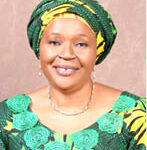Across Nigeria, single women have been reported to complain of discrimination against them when it comes to renting apartments or houses.
Weekend Trust spoke to some of these women in some Abuja communities, who said the resistance they face is fuelled by stereotypes and biases, often rooted in the past experiences of landlords and house owners which has now left them battling for accommodation.
According to these women, one of the primary challenges is the perception that they are less reliable or financially stable. Some house owners even see them as a threat to their households. In some instances, landlords expressed concerns about their ability to pay rent consistently and maintain the property.
Weekend Trust also gathered that the presence of male guests as well as the possibility of engaging in activities that could disrupt the peace of other tenants make the house owners to prefer renting their properties to couples or families who are perceived as more stable and responsible.
- I use spoken words to inspire positive social change – Alhan Islam
- Lessons learning features in the Ghanian elections 2024
A 2022 online publication by sisterly HQ on the property rental experiences of single Nigerian women recorded that ideally, housing is considered a basic amenity everyone should have access to, including single women.
It also stated that women should not have to struggle or worse still, be attached to a man in one form or another, to be able to rent an apartment.
The battle to strike a balance for women in Nigeria’s patriarchal society has, no doubt, transcended leadership and political spaces, to education and cultural practices, known to put women in disadvantaged position and now to housing opportunities.
Confirming the struggle for single women, a 2024 publication by Revive Africa, on “gender biases in housing access” noted the inequalities plaguing house ownership in the country, stating the significant rot in the housing rental space as, “women, especially single women, find it difficult to rent houses”. According to the study, most female corps members experienced different forms of gender discrimination as they needed the authorisation or the presence of their parents or guardians before house owners let them rent apartments in Lagos State.
“They were also predisposed to many forms of sexual harassment—sex for rent, sexual assault, rape, snarky comments, inappropriate touches”, the report stated. The study also revealed that some females experienced higher rent charges than their male counterparts.
Also, an online article by 21st Century Chronicles on “Agony, stigma, single ladies endure seeking for rent in Abuja”, noted that “If getting a decent accommodation in Abuja is difficult, it is twice as difficult for unmarried ladies who face all manner of discrimination and stigmatisation from property owners and managers.”
Accommodation, for many who live in Abuja, is the most important thing which once sorted out, makes living in the nation’s capital city a lot easier.
Experiences of women
In an interview with Weekend Trust, Deborah Joshua, a 25-year-old artificial hair vendor who resides in Jahi II Abuja, recalls facing repeated rejections from landlords, a struggle that forced her to turn her shop into a home. “I moved to Abuja in 2023, stayed with some friends for a while, then decided it was time I got my space. We went house hunting but to my surprise, I was denied the opportunity to rent a place. One of the landlords openly told me he did not want single ladies because they would end up not paying the next year. Even after pleading with him, he turned a deaf ear,” she said.
Deborah added that the landlord insisted other ladies had begged and promised him the same thing she was promising him but they ended up disappointing him, hence his decision not to let his house to single women.
“I was planning on getting a house before starting a business, but the difficulty getting one led me to get a shop,” she said.
According to Deborah, two weeks after setting up her shop, she got a new mattress and that was how her shop became her home at night after business in the day.
“Most people have no idea I sleep in the shop. I open very early, and then go to where I used to stay with my friends to take a bath and come back,” she added.
Twenty-four-year-old Chisom Emmanuel, an orphan from Anambra State, who moved to Abuja in 2023, in search of greener pasture, said, “when I came to Abuja newly, I stayed with my aunty for a while. Afterwards, I went to look for a house but I kept getting rejections from landlords. A landlady told me I looked too young and that may mean I won’t be able to pay her subsequently. Another landlord told me they didn’t have available rooms but I later heard they gave two rooms out to some families.”
After a number of disappointments and frustration, Chisom and one of her friends agreed to rent a place together but this time around, a landlord told them he would not rent his place to a single lady not to talk of two single ladies.
Nenfortmwa Jeremy, a 30-year-old lady from Plateau State, just like the others, said she got rejected several times to the point that she had to take a male friend to stand in as her fiancée before she got an accommodation.
“When I went with my friend, we told them we were getting married and that was why we were looking for an apartment,” she said.
That was how she was able to secure an apartment for rent in Abuja.
On the flip side, landlords who voiced their concerns, gave reasons for their actions.
Mr. Dangle Samuel, a landlord in Jahi, said he could no longer rent his property to single female tenants.
“Past experiences influenced my decision not to rent my house to single female tenants. Reasons include paying rent late or even disappearing when the expiration date is approaching. There were cases when some of the female tenants insulted me because I asked for my rent,” he said.
He added that he has never had such problems with single men, which makes him prefer the male folk.
Shekoyemilo Enoch, a landlady in Jahi, who has also vowed not to rent out her house to single women, said, “although there are some of them who are responsible, the behaviour of the bad ones has rubbed off on the good ones.”
Narrating an experience, Mrs. Enoch said, “there was a lady in my compound who was bringing in different men almost every day. I didn’t have peace of mind because of crazy moments of fights. Sometimes I had to separate fights in the middle of the night.”
She said her neighbours complained about the constant noise and disturbance coming from her house which made her to send the tenant away.
Amid the discrimination single women face in the house renting market, some are stepping up as allies.
Joy Iliya, a married woman, stands firmly in support of single women’s right to accessing housing. Joy does not believe that any women should be denied access to accommodation if she is willing and able to pay for it.
Women should know their rights
In an interview with Barrister Redzie Jugo, an Abuja-based lawyer, he said “In Nigeria, discriminating against someone based on their gender is prohibited by law.”
Quoting the Nigerian constitution, Barrister Jugo said according to the constitution of the Federal Republic of Nigeria (1999) article 42(1) states: “A citizen of Nigeria of a particular community, ethnic group, place of origin, sex, religion or political opinion shall not, by reason only that he is such a person, be subjected to any disability or restriction.”
Furthermore, the National Human Rights Commission Act (1995) Section 2(1) states: “Every person shall be entitled to the rights and freedoms provided for in this Act, without distinction of any kind, such as race, sex, language, religion, political or other opinion.”
He added that if a landlord in Nigeria refuses to rent a property to a woman solely based on her gender, the action contravenes the law and they may be liable for discrimination claims, human rights violations and potential lawsuits and damages.
He further said that if a woman is denied rental property due to her gender, she can file a complaint with the National Human Rights Commission or seek redress through the courts. “It’s essential for landlords and property managers to understand and comply with these laws to avoid potential liabilities.”

 Join Daily Trust WhatsApp Community For Quick Access To News and Happenings Around You.
Join Daily Trust WhatsApp Community For Quick Access To News and Happenings Around You.


